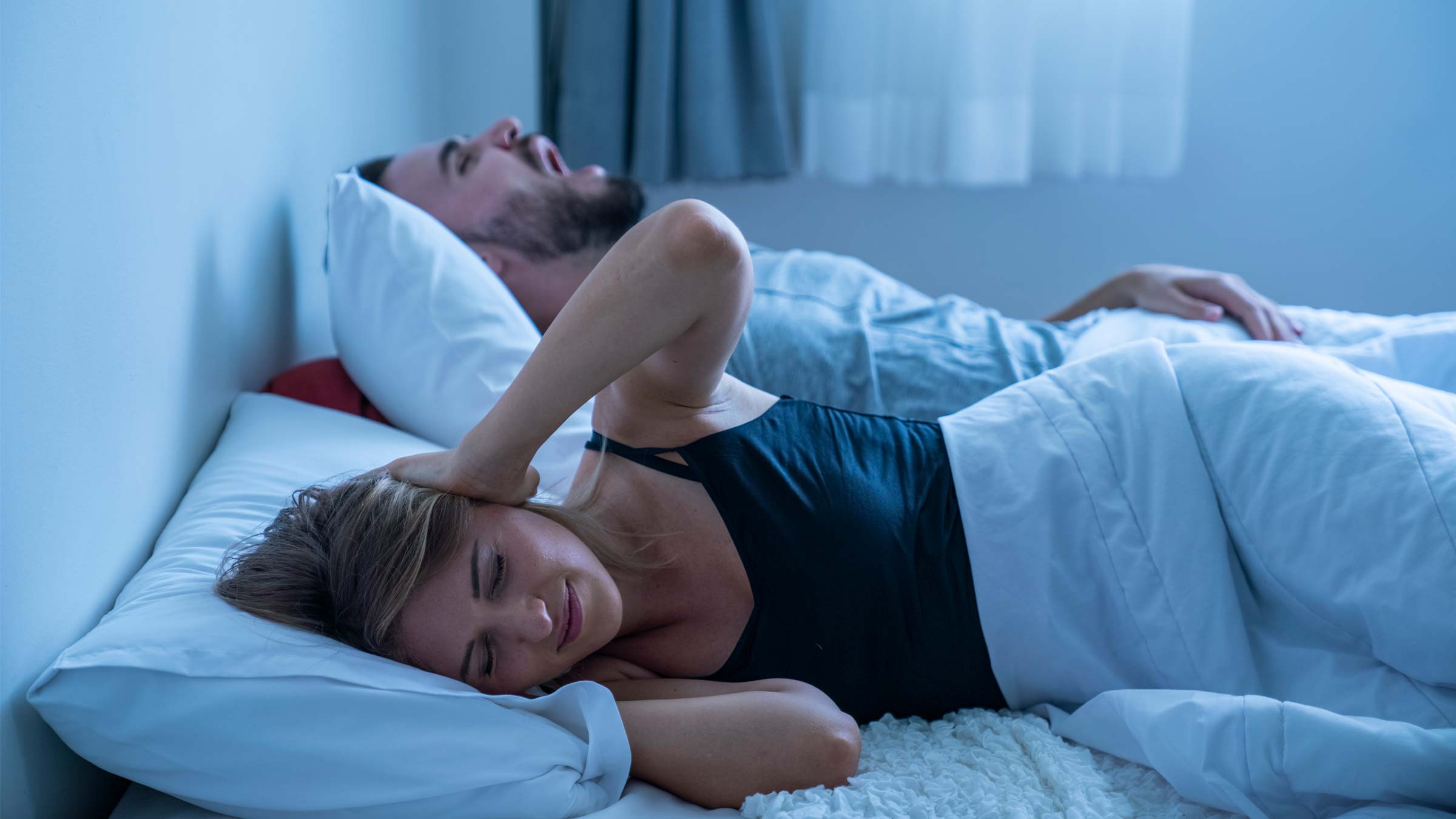
Stress may be stealing your attention away and causing you to forget more.
Or it could be something you may not have considered: sleep apnea.
The cognitive symptoms of obstructive sleep apnea, the most common type of sleep apnea, are similar to some of the cognitive symptoms of dementia. Besides leaving you sleepy during the day, sleep apnea can cause forgetfulness, as well as trouble concentrating, organizing and planning.
Obstructive sleep apnea happens when the muscles at the back of your throat relax more than they should while you sleep, partially or fully blocking air from going into your body. That stops your breathing for a few seconds up to minutes, then you wake up and immediately start breathing again. Throughout the night, you might stop and restart breathing many times and have no idea you’re doing it. Those lapses can keep you from getting enough deep sleep. And that sleep deprivation can make thinking, remembering and concentrating very challenging.
Sleep apnea interrupts breathing
It’s considered normal to occasionally stop and start breathing, especially when you’re dreaming. With severe sleep apnea, you typically have 30 or more breathing interruptions an hour throughout sleep, and for some people, it’s over 150.
The condition can be serious and contribute to high blood pressure, an irregular heart rhythm, strokes and diabetes, as well as depression, anxiety and other mental health issues.
Why is getting enough sleep so important?
Sleeping is time for your brain not only to rest but also to heal. During sleep, your brain clears out pathological proteins that build up during the day. When people aren’t sleeping, those proteins don’t get cleared out and an accumulation of those pathological proteins is associated with dementia.
If you’re chronically sleep deprived, you may have lower pain tolerance, problems with attention and short-term memory loss, as well as daytime sleepiness.
Can sleep apnea lead to dementia?
It’s unclear. We who research sleep disorders don’t know if sleep apnea can cause dementia. We’ve identified a link between them, suggesting that untreated sleep apnea could lead to earlier onset or faster progression of dementia. Why is uncertain. Is the reason the periods of low oxygen to your brain while you sleep? The sleep deprivation? Or inflammation in the body that sleep apnea causes? We just don’t know yet.
Can sleep apnea cause long-term memory loss?
It can. Symptoms don’t go away for 10% to 15% of people treated for sleep apnea. They have some type of long-term permanent symptoms.
However, the majority of people with sleep apnea do not experience long-term memory loss. The improvement we see in patients with sleep apnea typically happens about three months after they’ve been treated. Patients say they rest better and remember more.
Treatment for sleep apnea
If you have moderate to severe sleep apnea, you may benefit from wearing a continuous positive airway pressure (CPAP) machine while you sleep. That keeps your airway open throughout the night and prevents lapses in breathing. The challenge for patients can be wearing the device. It’s uncomfortable. If you’re claustrophobic, wearing it can cause anxiety. You also might take it off, without knowing it, in the middle of the night, reducing the benefits.
There are other options besides a CPAP machine. A device that goes inside your mouth can prevent your tongue from blocking your throat, keeping your lower jaw forward and your airway clear. Another option is a device that’s implanted in your chest under your skin to help you breathe. If you’re obese, weight loss is beneficial.
How much does sleep apnea affect memory?
Sleep apnea can significantly affect memory. It depends on the person and how severe the sleep apnea is. Sleep is important to process memories and learn. If you’re excessively sleepy, you’re more likely to make frequent errors on tests and more mistakes at work or while driving.
Does loud snoring mean you have sleep apnea?
Loud snoring can be a sign of sleep apnea, but you could snore loudly and not have sleep apnea. Your loud snoring could be because the muscles at the back of your throat tend to collapse when you sleep but not to the point of affecting your breathing. Roughly 40% of people who habitually snore have or will develop sleep apnea. But only a small percentage of those who get sleep apnea will develop serious health problems as a result of the sleep disorder.
The risks associated with sleep apnea are probably a bit overblown. About 11% of the general population have or will have sleep apnea, but only 4% of those who have sleep apnea will have it severe enough to cause long-term health problems, such as high blood pressure or strokes. Most studies involving people with mild obstructive sleep disorder don’t experience serious health consequences.
In children, sleep apnea can look like ADHD (attention-deficit/hyperactivity disorder), but the hyperactivity and distractedness usually go away after the child’s tonsils are taken out and the airway is cleared. With adults, having tonsils taken out won’t usually resolve the problem. The size of tonsils in a child’s mouth are large, so removing them can make a bigger difference in clearing the airway than removing tonsils from an adult’s mouth. If you’re an adult with moderate to severe sleep apnea, you would more likely be treated with a CPAP machine or another device so you can start to experience full nights of sleep without all the interruptions.

Take charge of your sleep
Learn more about the causes of sleep disorders and treatment options available at Ohio State
Take charge today




